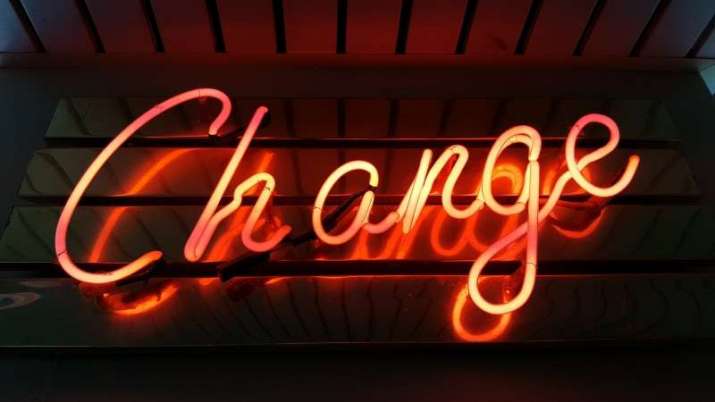FEATURES|COLUMNS|Bodhisattva 4.0
Petitions

In the early history of petitions, they were requests to a person in power to right a wrong. Today, a similar application would be to petition the court. In our modern world, petitions have come to mean something entirely different from these more formal, legal precedents.
Social media is full of petitions: save the whales; impeach Trump; redesign a dangerous intersection; don’t redesign our popular snowmobile trail. . . . The list is endless, and we are likely to become jaded, numb, or fed up with them. The backlash calls them #slacktivism. According to the New Statesman magazine, they simply don’t work. In profiling the petition aggregator Change.org, The New York Times concludes that raising awareness makes petitions successful, not their ultimate acceptance or rejection.
So what is the value of petitions? Are they a valid form of activism?
A distinction can be made.
A petition about a specific topic, with a local focus promoting the public good, sent to an administrative body that is really in charge of that local jurisdiction has a good chance of passing. That seems worth investing in.
A petition about a general topic, with a global focus, shared among peers, is really a group identification marker that has little downstream impact. That does not seem worth investing in, or at least it should not be the terminus of our activism. There has also been a disturbing trend of using petitions as propaganda—a way of fomenting discord over wedge issues. We see this in live demonstrations by fringe groups too. Of course, 99 per cent of petitions have now moved online and that has ramifications. Facebook likes,” Twitter “faves,” and LinkedIn “endorsements” are presented as community-builders. Aggregators like Change.org, Activism.com, Moveon.org, and so on, provide a wealth of further options. Crowdfunding sites are yet another flavor of participatory democracy, where we can vote with our dollars to support one cause or another. Nowadays, our “votes” may also mean banging pots from our porches for healthcare workers.
 From nzherald.co.nz
From nzherald.co.nzWhat’s a Buddhist to do?
There are quite a few petitions relating specifically to Buddhist issues, from support for the Rohingya in Myanmar, to protests against anti-Dalai Lama propaganda from the New Kadampa Tradition, to saving a threatened Buddhist studies program, to preserving ancient sites and statues, as well as platforms where Buddhist leaders have taken joint action on matters of broad public interest, such as immigration, sexual abuse, race relations, climate change, disarmament, and so on.
There is another sort of petition, for which there is a longstanding history—for divine intervention. In a religious context, people might petition a deity through prayer, supplication, or offerings of various kinds.
The Buddhist approach is rather different. For starters, since there is no creator god in Buddhism, and since Shakyamuni Buddha disavowed divine intervention, there is no Buddhist equivalent for religious petitions of that kind.
However, we often hear of Buddhists praying for the blessings of various buddhas, yidams, gurus, local spirits, and so on. Prayer wheels are spun, wind horse prayer flags are hung, incense is burned, offerings are made. Rather than simply dismissing these as vestiges of primitive beliefs or cultural idiosyncrasies, they may be taken by Buddhists as practices to develop one’s own or our collective mental continuum instead of expecting some divine response. At least, that is the contemporary Western Buddhist psychological perspective. The Pure Land notion of tariki (Jap: “other power”) is different, and I am sure you can find many practitioners who swear by the efficacy of those prayers.
As with many other Buddhist interpretations, the focus is on a turning about of the mind, rather than some external agent. We might say our modern focus on technology as our savior is a similarly misplaced externalized focus, but quietism was not Shakyamuni Buddha’s intent: “Not to commit evil, but to do all that is good, and to purify one’s mind; that is the teaching of all the buddhas.” There’s the doing part in the middle.
The difficulty becomes clear in the aphorism that the road to hell is paved with good intentions. I have no doubt that “end the pandemic shut-down” protesters in the US believe in their cause. So do the anti-vaxxers. That doesn’t make them right. And that’s why reasoned debate among diverse opinions is healthy, so that our intentions benefit from wide scrutiny and design thinking. There will always be powerful people and forces with self-serving agendas to promote. Speaking truth to that power will always be beneficial. But allowing a few to control the many, or for the many to limit their activism to petitions and demonstrations, are less than ideal consequences. Indeed, current social-distancing guidelines make demonstrating very difficult, even when sorely needed.
While the primary goal of Buddhist practice may be personal, without the baked-in command to proselytize others to get them to change, that does not mean we need not concern ourselves with being engaged in society.
For example, late in 2019, Change.org launched a petition that the American Academy of Religion (AAR) should demonstrate leadership on the climate crisis. The petition was broadly shared and garnered about 300+ signatures after a month or so. Then it more or less disappeared into history. That prompted me to look at the AAR site, and sure enough, there has been virtually nothing about climate change from them since 2014. In other words, the petition had a point. Still, if the petition had been directed toward AAR members rather than the general public, it might have been more successful.
This doesn’t surprise me, because even the Global Buddhist Climate Change Collective has done virtually nothing since issuing their call to action in 2015. I’m sad to say that while there have been a number of Buddhist initiatives on climate change, freshwater conservation, habitat preservation, and the like, they usually peter out after a few years, or fail to capture the public imagination and gain strength.
The Alliance of Religions for Conservation, a leading interfaith organization promoting responses to our multi-faceted Anthropocene problems, closed in 2019 after 23 years. That leaves GreenFaith as the most visible interfaith organization in this space. Irene Woodard, the vice chair, is a co-founder of the Shambhala Touching the Earth Collective. She’d be a great person to approach if you want to do more environmental work in your congregation. And you won’t need a petition to get her attention!
In our modern culture, petitions may seem a tad old-fashioned. Impressive numbers of signatures have been overshadowed by viral video views, ’gram shares, and so on. The entire notion of what it means to be an influencer has morphed from being someone actively involved in participatory democracy with a shared stake in the future to wanna-be celebrities building fanbases. Let’s not lose sight of the ultimate goal of petitions: to build intentional communities, right wrongs, and make a better world.
In our pandemic present, we may be more aware of our interdependence than ever before, and the permeability of the imagined divide that separates us from the natural world. Responding to crisis, we’ve whipped up ad hoc initiatives in our own communities, like massively ramped up food banks, counseling networks for healthcare workers dealing with unimaginable trauma, and caremongering websites. If there is any silver lining amid this novel coronavirus, it is this new sense of all being in this together. That feels to me a lot more powerful than any petition.
See more
The American Academy of Religion (AAR) Should Demonstrate Leadership on the Climate Crisis (Change.org)
Buddhist Support for Rohingya People (Petitions.net)
Say No to a Dalai Lama Chosen by China (Free Tibet)
MoveOn
GreenFaith
Related features from Buddhistdoor Global
Exercising the Moral Imagination: A Letter from 30 Years Hence
Making a Difference: Radical Happiness
Buddhistdoor View: Can Elites Be Expected to Bring Change at Davos?
Zen and the Art of Societal Collapse: It's Never Too Late—To Give Up!
Dharma in Action: Tackling the Climate Change Crisis














